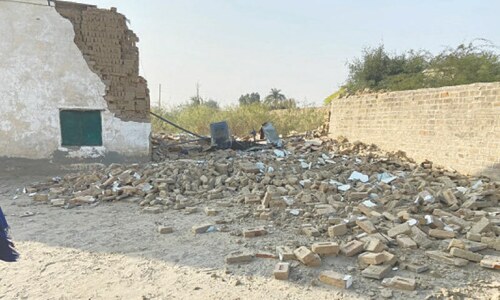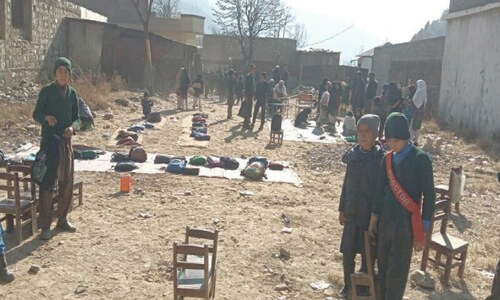PESHAWAR: Khyber Pakhtunkhwa Chief Minister Mahmood Khan on Thursday announced a three-year Rs29 billion public sector investment plan to put the province’s economy back on track in the post-Covid-19 period.
Made by the planning and development department, Azm-i-Nau, the Spirit of KP, Economic Recovery Plan 2020-23, was unveiled during a special ceremony here.
The plan is meant for the minimisation of the impact of economic slowdown and job losses, reinforcement of stimuli and short-term to medium-term liquidity for businesses, implementation of public sector intervention in expeditious manner, creation of short-term jobs, and medium-term service delivery and long-term development.
Under it, the government will make investments in nine sectors, including economic growth, small and medium enterprises, jobs for development, emergency response, health, social protection, education, governance and public works.
According to the plan, Rs2.6 billion will be spent to spur economic activities in the province.
Initiative meant to revive pandemic-hit economy
The economic growth pillar of the plan builds upon private sector investment with the government’s contribution to removing barriers to investment.
The document said said the current health and safety requirements of social distancing offer an opportunity for the government to digitise the processes, especially those pertaining to issuance of licenses, registration of businesses, obtaining necessary approvals and redress of complaints.
It said growth of agriculture sector also forms an integral component of this pillar; with the dual purpose of addressing food security and economic uplift of rural populations by ensuring smooth running of the agricultural supply chain.
Under the plan, the government will spend Rs2.4 billion to enhance resilience of small and medium enterprise to sustain production.
As SME sector and micro-enterprises forms the backbone of private sector employment in KP, supply side interventions will sustain the estimated 13,000 such enterprises in the province, which provide an estimated 350,000 jobs.
Under the plan, Rs18.8 billion will be spend on creating jobs for 98,000 workers, including a minimum of 30,000 women for a maximum period of 1 year.
The money will be spent on five sectors including billion trees tsunami wherein 195 million trees would be planted. Besides, 7,400 education workers to engage 750,000 out-of-school children, 8,000 health workers for hygiene awareness across the province and 930 waste collection workers to collect plastic waste and disinfection workers to visit villages, towns and cities of the province.
Another Rs865 million will be spent on enhancing emergency responses and it includes interventions to enable a well-organised district administration capable of responding to emergencies, plugging gaps to keep supply chains running and engaging citizens through accessible platforms while a mechanism for accurate and timely transfer of information to relevant monitoring authorities is being employed to shore up the effectiveness of rapid response units in order to limit the spread of the virus.
Rs440 million will be spent on calibrating health system to manage burden of diseases and proposed interventions include supplying personal protection equipment, strengthening intensive care units, improving the disease surveillance systems, establishing diagnostic facilities and capacities, screening of anti-microbial resistant factors and provision of updated analytics for the respective district and provincial administrations to expedite effective and efficient decision-making.
Also, Rs400 million will be spent to provide protection to vulnerable section of population.
A total of Rs1.6 billion will be spent on transformation of education through emerging technologies and key intervention in the sector include disinfection of schools, building healthier school infrastructure, education continuity for all, accelerated learning through condensed curriculum, blended learning for remediation, phased digitisation of education system, strengthening communication for better delivery and improving data collection for schools management.
Under the plan, Rs954 million will be spent for adopting innovations to governance and service delivery and Rs785 million for labour intensive works.
Published in Dawn, July 31st, 2020















































Dear visitor, the comments section is undergoing an overhaul and will return soon.